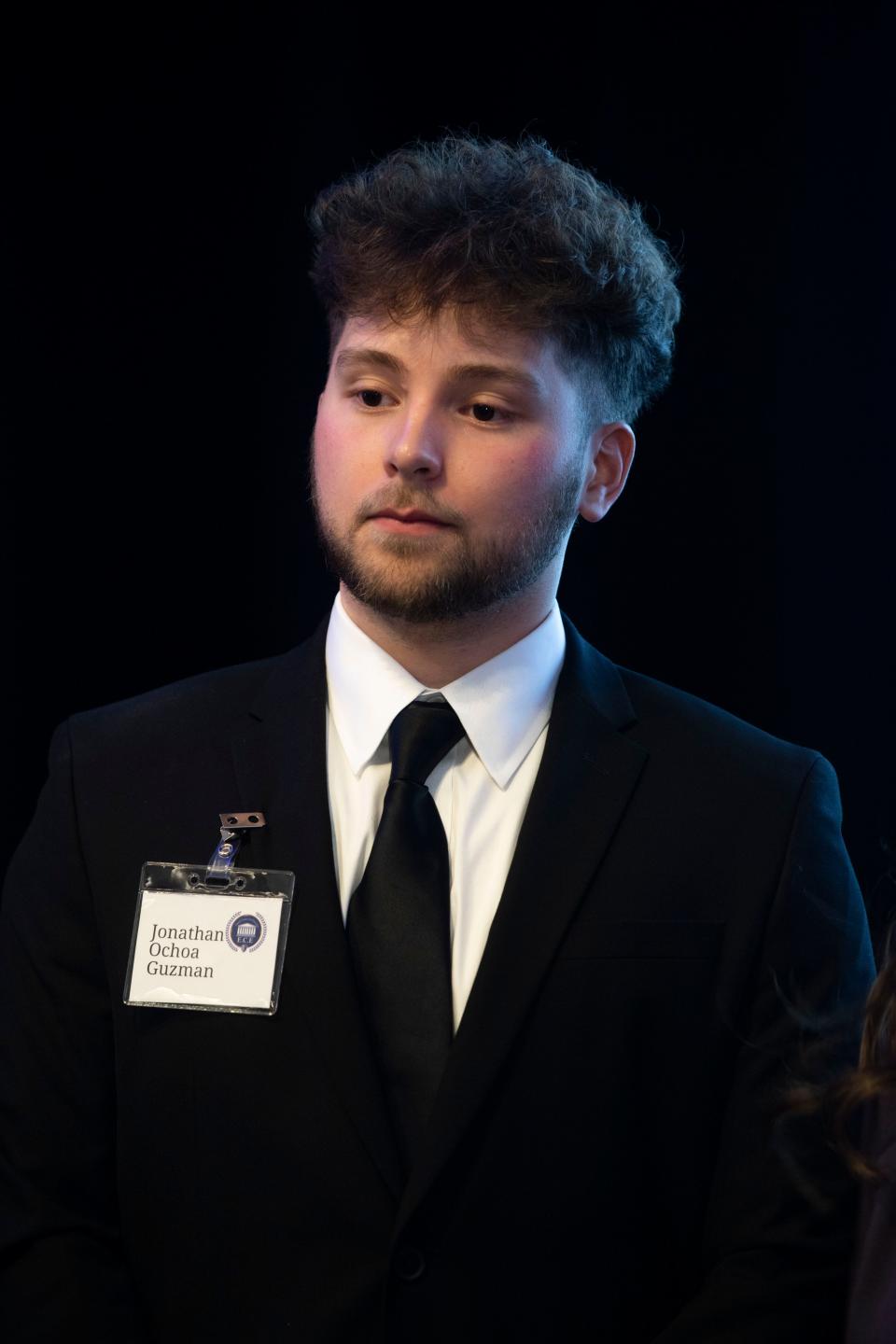Seeking American Dreams: Tennessee nonprofit helps undocumented students pursue college
Many undocumented immigrant students like Jonathan Ochoa grow up with a dream of attending college.
But unlike Ochoa, American citizens can apply for scholarships or loans to pay for school. Without Equal Chance for Education, a local organization that distributes $2.1 million in annual scholarships to undocumented students, Ochoa and others like him would not be able to attend college, he said Thursday during the third annual Evening of Conversations event in Nashville.
The event, hosted by Equal Chance for Education, included a panel discussion with former Washington Post publisher Don Graham, University of Tennessee Knoxville president Randy Boyd, civil rights expert Karla McKanders and Gaby Pacheco, an immigrant rights leader from Miami.
"I know many people, students, friends of mine who cannot get into a four-year university because they were born in their own country," Ochoa said. He is considered DACA, or Deferred Action for Childhood Arrivals, an undocumented immigrant who aspires for more.

Scholars who are part of Equal Chance for Education average a 3.27 GPA and maintain a 96% retention rate. The program's financial aid allowed Ochoa to attend Lipscomb University, where he graduated with a degree in electrical and computer engineering. He now serves as a engineering lab technician at the university.
He believes DACA, or dreamers as they're more commonly called, are worth the investment, the same as any child born inside the U.S.
During the Thursday discussion, Graham, Boyd, McKanders and Pacheco discussed that issue and several others facing undocumented immigrants as they attempt to pursue higher education and the American dream.
Pacheco said 18 states have passed legislation that offer in-state tuition and aid to undocumented immigrants.
Tennessee isn't one of them.
Call for change: Bob Corker, Jim Cooper: Laws should be fixed to help DACA recipients go to college
Equal Chance for Education got its start 10 years ago after founder Mike Spalding got inspired to support children missing out on financial aid, scholarships and bank loans to pay for college, he said.
Through the program, each student receives up to a $25,000 scholarship and can attend one of the 15 Tennessee colleges or universities the organization works with. To date, there have been 131 graduates and 556 students and their families have been helped.
There are about 8,000 dreamers in Tennessee. but only 333 are enrolled in the Equal Chance for Education program, the panel pointed out.
Without the program, there would be none.
"Mike Spalding is a national hero," Graham said.
Nashville Mayor Freddie O'Connell said the scholars are stars, and they are often stopped at the intersection of education and immigration policy.
"I think they're worthy of investment. It's an investment in all of us," O'Connell said, noting that nearly one in seven Nashvillians were born outside the United States.
"Being bicultural and bilingual are powerful things, especially in a place like Nashville, where we have watched our diversity grow as a society."
For children, sometimes legalities aren't a choice, some on the panel pointed out.
If an international couple immigrated to the United States and then had a child, the child would be considered a U.S. citizen, but if an international couple brings a child over, no matter the age, the child would be considered undocumented, causing several issues in understanding immigration status, Graham explained.
Pacheco came the United States when she was 8. She learned her immigration status would prevent her from going to college when her older sisters tried to attend a community college, she said, adding that it was a harsh reality, one that many undocumented immigrants face.
But Pacheco wanted to go to college, and she said she was both nervous and excited to apply.
She was known as the girl without papers. Her family sought answers, and she decided to dedicate her life to understanding the Dream Act and immigration status, she said.
For many undocumented students going through college thanks to Spalding's vision and organization, there will be opportunities beyond jobs, she said. They'll earn more than their parents combined, but with those opportunities, there also come responsibilities, she noted, urging others to give back.
Reach reporter Craig Shoup by email at cshoup@gannett.com and on X @Craig_Shoup. To support his work, sign up for a digital subscription to www.tennessean.com.
This article originally appeared on Nashville Tennessean: Tennessee dreamers get chance at college thanks to donations

